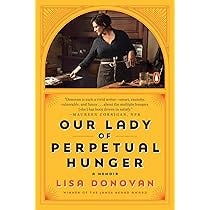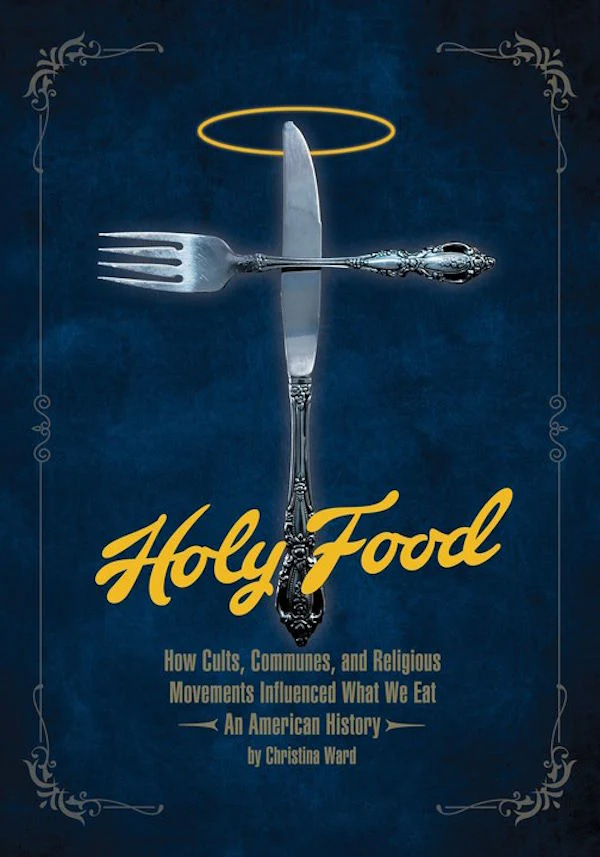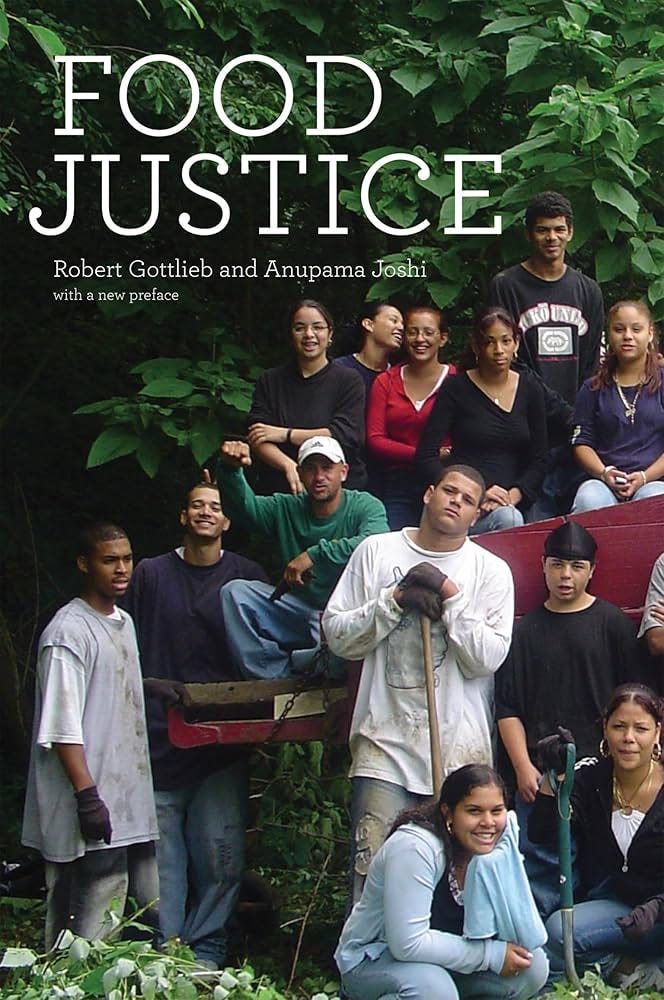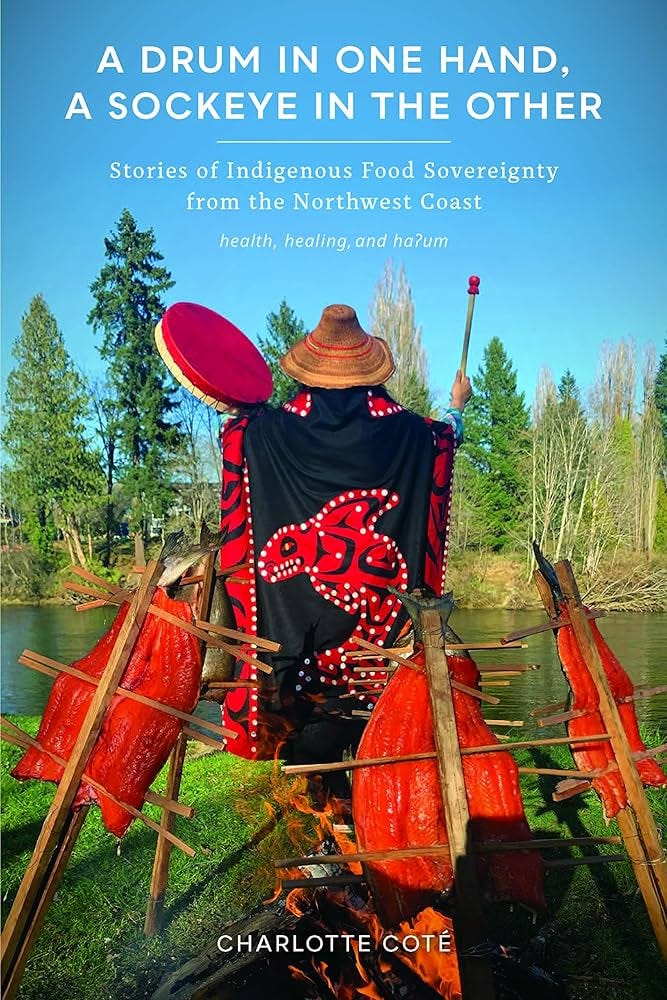Hello Friends!
Whoops, I’m a bit late to the end-of-the-year reading wrap-up. But as I’m cleaning out my bookshelf, I’d figured it’d be a good idea to share some of 2024’s food reads. I’d love to know what you’ve read, and are currently reading. Special thanks to the Elliot Bay Book Company for having an irresistible selection of food books, especially from local publishers and authors.
Hippie Food by Johnathan Kauffman
This deep dive into the dietary trends of counter-culturists is probably one of my favorite food reads of 2024. Hippie Food: How Back-To-The-Landers, Longhairs, and Revolutionaries Changed the Way We Eat journeys through how the hippies of the 1960s and 1970s practiced their values through diet. One of the most interesting topics explored is how food co-ops developed, survived, dissolved, or taken advantage of by venture capitalists. As an experienced food writer, Kauffman tells an engaging story making it one of the most accessible food anthropology books. This was also a more approachable alternative to Warren Belasco’s Appetite for Change.
Our Lady of Perpetual Hunger by Lisa Donovan
Way to make me cry, Elliot Bay Bookstore! I randomly picked up this memoir because it was on sale and couldn’t put it down. Forget the culinary arts, Our Lady of Perpetual Hunger is a memoir about womanhood. Donovan’s stories may have been her own but are too familiar. Somehow, our experiences as women are universal yet many of us seem to navigate them alone. Why? Love, loss, toxic relationships, disordered eating, pregnancy, sexual harassment, assault, juggling motherhood and a career, and having to prove yourself beyond the limitations gender norms set for you. Donovan’s solitude calls attention to the distance we can feel between ourselves and others even when they try to help us. As Donovan strengthens her relationships with other women, she seems to be pulled toward a more authentic life. She does a beautiful job reflecting on the unspoken intergenerational pain we carry, and attempts to transcend from it.
Holy Foods by Christina Ward
Naturally, Elliot Bay Bookstore also introduced me to the locally published Holy Foods: How Cults, Communes, and Religious Movements Influenced What We Eat — An American History. In this comprehensive book, food historian Christina Ward provides a snapshot of a wide range of religions, their dietary beliefs, and even provides recipes for each religion! Ward’s research is extensive and reminds us of how dietary choices impacts our perceived and expressed identities.
Food Justice by Robert Gottlieb and Annupama Joshi
Food Justice is a wonderful introduction to the concept of food justice and provides a snapshot of several food injustices that impact all of us. Gottlieb and Joshi explore a wide range of food justice topics including food deserts, dangerous farming conditions, capitalism, inequities, and food activism programs trying to improve food systems. So many of us care about the safety and quality of our food, yet so many are unaware of how industrial giants created a food system wider than we can see that negatively impacts our food, health, planet, and local economies.
Nature’s Perfect Food by E. Melanie DuPois
This fun food history books explores America’s fascination with milk, and it’s relationship is more surprising than you may think. E. Melanie DuPois traces our nations history with milk to the 19th century, when feeding milk to children allowed bourgeoise women to have more freedom to be socialites. Milk’s perceived “purity” and “perfection” (for having every macronutrient) encouraged many to see it as a Godly food to strengthen the (white) race. As the book traces milks history to the modern day, it explores the progression of food processing, food policy, agriculture, and industrialization, which ultimately shifted our relationship with milk.
Bite by Bite by Aimee Nezhukumatathil
Skip? I typically love genre-blending but after reading other reviews, maybe this one just wasn’t for me. Nezhukumatatahil practices a literary challenge by choosing a food for each letter of the alphabet and writing a short essay for each. Each short essay provides a personal connection, example of the food cooked in a dish, and a bit of science and history. Although many of the “science and history” bits were inaccurate, and her formula for each essay eventually became redundant, and exhausting. As much as this book likely required a ton of research and time, the style itself is very challenging to make interesting and likely undermined the authors skill. Maybe it’s a cute coffee-table book, but if you’re looking for interesting food essays, instead I’d recommend The Best American Food Writing.
The Book of Difficult Fruit by Kate Lebo
Kate Lebo’s genre-blending book exploring her relationship with various types of “difficult” fruits is exactly what I expected Bite to Bite to be. Lebo also provides a short essay about a different food for each chapter, although she does not stick to a particular formula for each essay which makes it more dynamic and interesting to read. A blend of memoir, science, history, and anthropology, Lebo reminds us how we see the darkness of our bruises in that of our food. Similar to Bite by Bite, some of Lebo’s scientific and historical notes are slightly incorrect which calls attention to the importance of precision in word.
A Taste for Purity by Julia Hauser
Published in 2023, Hauser explores the social movements and values in 19th century Europe and North America that led to the development of vegetarian movements. Hauser explores how vegetarianism was used to reinforce racism and eugenics against non-whites, and how white European vegetarians created worldwide false narrative about Indian diets. At the same time, some Hindu nationalists used vegetarianism as a means for colonial resistance. Although Hauser captures a small snapshot of vegetarianism, I loved the comprehensiveness of her research as it demonstrates the complexity of social movements and how many different peoples and values can exist in one place.
A Drum in One Hand, a Sockeye in the Other by Charlotte Coté
Charlotte Coté provides several stories about indigenous community’s relationship to the land and food. Through the book, Coté connects with her community, family, and land to strengthen ancestral foodways knowledge to strenghten Nuu-chah-nulth practices and the health of indigenous communities. The impact on colonization on our food systems and diets has impacted all of us and although these stories are Tseshaht, the experiences are shared amongst so many other communities across the globe. This was a wonderfully accessible book that could help introduce many to understand the importance of food sovereignty and how we can each practice it in our personal lives.
Food in Time and Place by Paul Freedman, Joyce E. Chaplin, and Ken Albala
An honorable mention, Food in Time and Place was a great resource for me this year but not a worthwhile read for most. This dense, academic book provides a snapshot of food anthropology in each region of the world. Although it provided a few interesting facts, it was very dense and for most, a bit too challenging to read.
Formerly Known as Food by Kristen Lawless
I wasn’t sure whether or not to include this book, but then I remembered how many people read this and took it as credible. I try to regularly engage with titles that focus on nutrition just to be educated about what people might be reading, and this one in particular was deeply upsetting. Although I agree with Lawless’ intention and many of her arguments, her execution is a great example as to why journalists should not write about history, science, or anthropology. Even when she provides decent evidence to support her claims, her summation of evidence reflects her poor comprehension of nutrition, food history, and food policy. Creating even more confusion amongst the readers with low nutrition literacy that she is claiming to try to help.












I appreciate this book list; I'm always on the lookout for more food-related but non-cookbook nonfic. "Holy Food" and "Nature's Perfect Food" both sound particularly interesting to me.
But I also want to say that I especially appreciate seeing your honest opinions on "Bite by Bite" and "Formerly Known as Food" — I know it can feel kind of awkward to share negative reviews, but especially when it comes to books that claim historical or scientific accuracy it can be super helpful to share your own thoughts as an informed reader.